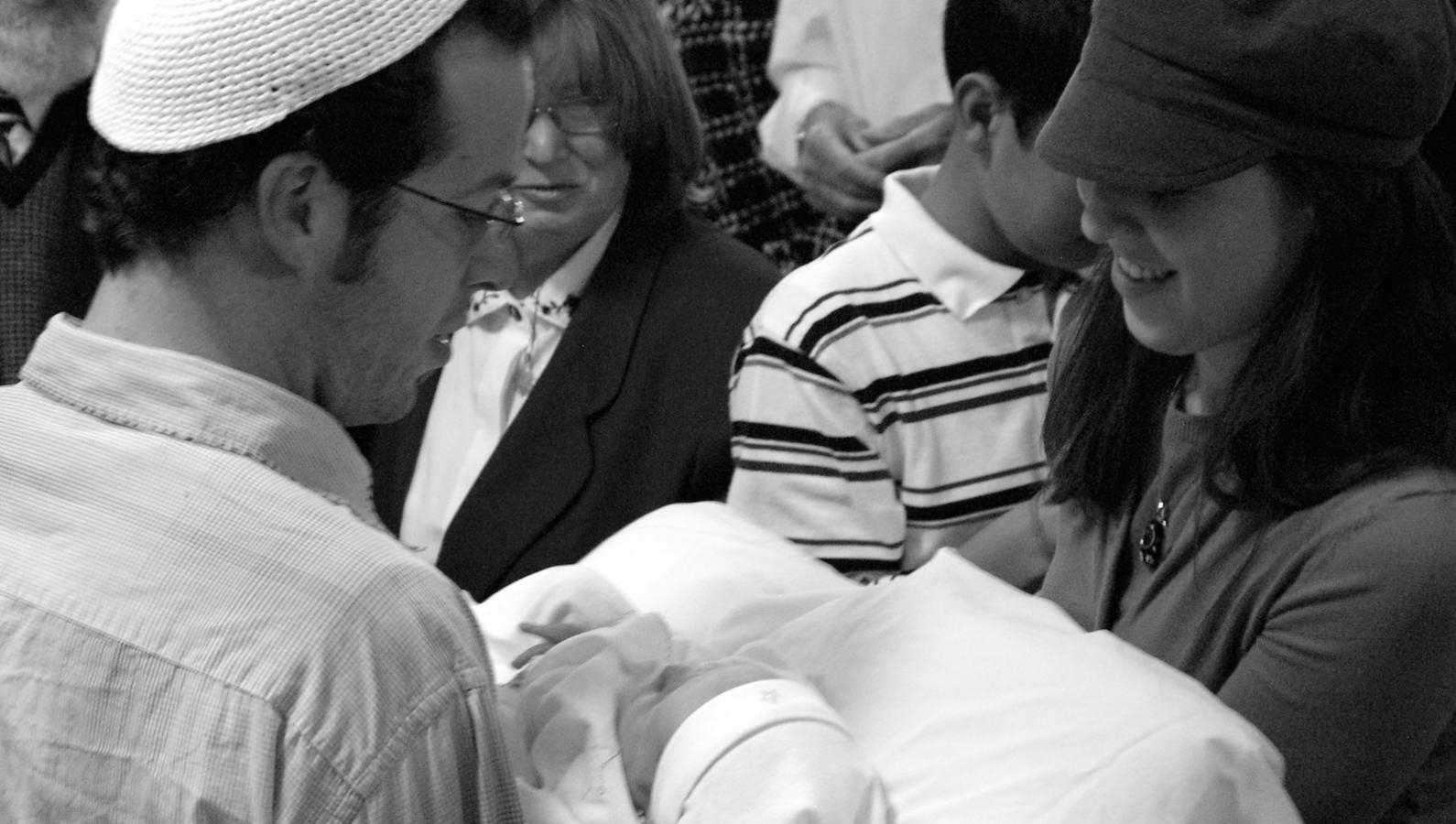Shalom Zakhar (Shabbat Before Bris)
There is a custom to make a feast of fruits and beverages on the erev Shabbat [the Friday night] before the day that the brit takes place. This is seen as a feast held in honor of performing a mitzvah […] and is called a shalom zakhar. Similarly, there is a custom to stay awake studying all night before the circumcision, to protect the child from demons, etc. It is obviously the last chance for the demons to get the child before circumcision makes him safe. This is called leil shimmurim–the night of watching.
Postpone for Health Reasons
One should not circumcise an infant who is weak, sick, or premature when medical opinion indicates that the circumcision might be dangerous. The brit, in this case, is postponed until a later date.
Postponed Ceremonies Should Not Be on Shabbat
Although a brit may normally be held on Shabbat or a festival (even on Yom Kippur), if the brit has been postponed because of the health of the child, it should not take place on any of those days.
Candles
It is customary to light candles in the room where the brit is to take place.
With your help, My Jewish Learning can provide endless opportunities for learning, connection and discovery.
A Chair for Elijah
Another custom is to set aside a chair for the prophet Elijah (who is called the angel of covenant and is reputed to be the protector of little children).
Put the Infant on the Chair
It is also a custom to put the infant on the chair before the actual circumcision.
Have A Minyan Present
Whenever possible, the brit should take place with a minyan (a quorum of 10 people [in traditional communities, 10 men]).
Remain Standing
It is customary for everyone but the godfather [the sandek] who is holding the baby to remain standing during the ceremony.
Parents Stand Beside Mohel
The father (or both parents [when the mother wishes to do so and the mohel is agreeable]) should hand the knife to the mohel and stand by him while he performs the milah, to indicate that the mohel is the agent of the parent(s). [If the child’s father is not Jewish then traditionally the mohel simply acts on behalf of the community.]
Additional Readings and Songs
[In addition to] the basic elements of the brit milah ceremony […], there is great historical precedent for adding meaningful readings, songs, statements, etc.–whatever the parents are into. While psalms, poetry, music, and group readings are appropriate within the context of the traditional brit milah, you should check nonetheless with the mohel you’ll be using. He or she will also be sharing in the ceremony and deserves consideration.
For more about Jewish parenting, visit our partner site, Kveller.
Reprinted with permission from The Second Jewish Catalog.
brit milah
Pronounced: breet mee-LAH, Origin: Hebrew, literally "covenant of circumcision," the Jewish circumcision ceremony for an 8-day-old boy, marking the covenant between God and the Jews. Also known as a bris.
mitzvah
Pronounced: MITZ-vuh or meetz-VAH, Origin: Hebrew, commandment, also used to mean good deed.
Shabbat
Pronounced: shuh-BAHT or shah-BAHT, Origin: Hebrew, the Sabbath, from sundown Friday to sundown Saturday.



